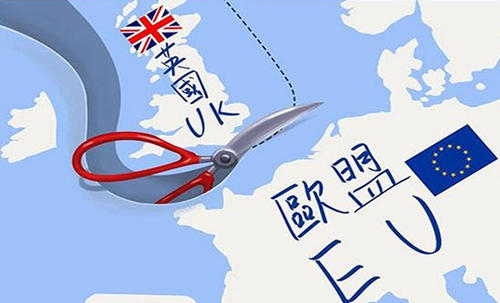英国签订渡轮货运合同,以确保脱欧后的贸易正常

随着英国脱欧过渡期即将结束,英国政府宣布已采取措施,无论目前与欧盟的谈判结果如何,都将确保关键的货运业务在2021年继续运作。欧洲已与四家主要渡轮公司达成协议,在过渡时期于12月31日结束后,维持来自欧盟的货物流动。
英国交通部宣布,它已经与布列塔尼渡轮公司、DFDS公司、P&O渡轮公司和Stena公司签署了价值超过1亿美元的6个月合同。他们指出,如果不需要订立合同,终止合同的费用将是全部合同数额的一个未指明的部分。这已经成为了上一次英国脱欧后的轮渡服务的主要争论点。
这些合同集中在9条基本航线上,这些航线服务于8个港口,运输部表示,这些航线不太可能出现中断。合同中包括的港口有费利克斯托、哈利奇、赫尔、纽黑文、普尔、朴茨茅斯、蒂斯波特和蒂尔伯里。多佛和福克斯顿航线被认为对英国和欧盟之间的贸易尤为重要。
运输部长Grant Shapps在宣布合同时说:“随着过渡期的结束,我们将采取必要的措施来保障货物的顺利和顺利的流动。”。“确保这些合同的签订,无论谈判结果如何,从我们离开欧盟的那一刻起,救生医疗用品和其他关键物品都可以继续进入英国。”
这并不是英国在脱欧的长期斗争中第一次承包运输服务。2018年底,英国政府与英国国防部、布列塔尼渡轮公司和海运公司签订了类似合同,为“无协议脱欧”做好准备。这些价值1.4亿美元的合同旨在应对潜在的航运瓶颈,重点是朴茨茅斯、普利茅斯、拉姆斯盖特和普尔港。
为保障货物流通而签订合同的企图受到广泛批评。尽管该公司没有船只,也没有经营货运渡轮服务的经验,海运费仍占合同的15%。在宣布无协议退欧后,政府最终取消了这些合同,此事最终诉诸法庭。据各种媒体报道,这些定居点最终耗资超过1亿美元。
对于这一轮合同,政府强调,它使用了旨在改善货物流通的2019年框架。所有的合同都交给了经验丰富的运营商。他们指出,供应链因COVID-19危机而中断,但这些合同将确保在12月31日退出欧盟的过渡期到期时,“救生医疗用品和其他关键商品能够继续进入英国”。
